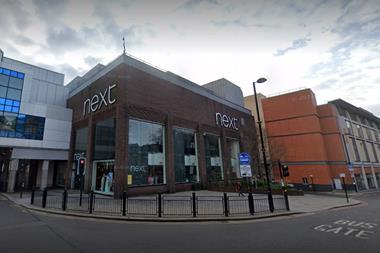In this episode, Ibrahim Ibrahim of Portland Design, Radius Tech’s Burak Capli, and The Good Economy’s Vivienne King join Andrew Teacher to discuss the future of retail shopping. All three guests have contributed to Ibrahim’s new book, Future-Ready Retail, which explains how to make retail spaces smarter going into the future.
You can listen to this podcast via Apple Podcasts or Spotify or SoundCloud or listen to it through the player below:
It’s unarguable that the increasing prevalence of online shopping and changing consumer attitudes have eaten into traditional, physical retail’s bottom line. But if retailers are smart, they can work with these trends rather than fight them. In doing so, a revitalised retail sector can encourage flows of capital into economically diverse regions.
Ibrahim Ibrahim, managing director at design agency Portland Design tells Andrew that real estate investors should prioritise three things to make their retail future-ready: occupier diversity, developments tailored to local people that capture the ‘local essence’, and convenience – not only in terms of retailers, but also in creating environments that are intuitive and easy to use.
For Ibrahim, ease of use is “absolutely fundamental” for developments if they are to lure consumers away from online shopping: “Shopability is key, whether that’s on a macro scale in terms of development or within a shop itself.”
One of the reasons online shopping is so effective is because of tailored algorithms that predict and suggest buying options to shoppers based on their online footprint. However, there are also ways to make traditional in-person retail more appealing by creating physical environments based on a similar sort of data collection.
Burak Capli, CEO and co-founder of consumer insights firm Radius Tech, which utilises a data-driven approach to developing and managing commercial real estate, emphasises the importance of using data to create an intuitive environment for shoppers.
“We need to understand what people do online, because that’s where they clearly and openly speak about themselves, and that will allow us to shape the physical destinations,” he says.
The use of data helps to explain to investors how to create a built environment that people want to visit with greater certainty. “The strategy is formulated, not designed. This is because it comes from mathematics. It is the statistical explanation of what people want,” he adds.
A data-centred approach can help tailor retail development to the needs and wants of local areas. Vivienne King is former CEO of retail membership organisation Revo and current head of real estate social value at The Good Economy, a management consultancy firm. She argues that design uniformity in retail has hindered desirability and therefore the sector’s ability to produce social benefits by creating thriving local economies.
“The UK has one of the greatest levels of regional inequality in the whole of Europe,” she notes. “We shouldn’t tolerate that. We should be demanding and expecting something better of our politicians and business leaders.”
King suggests that a higher degree of specificity in terms of design can play a role in reducing these inequalities.
“We need to be engaging more in a place-based approach when it comes to investment,” she observes. “Place-based impact investment can play a role in ensuring that capital is being applied in a way that is rational, purposeful, and relevant to that place.”
You can listen to this podcast via Apple Podcasts or Spotify or SoundCloud or listen to it through the player above.






























No comments yet